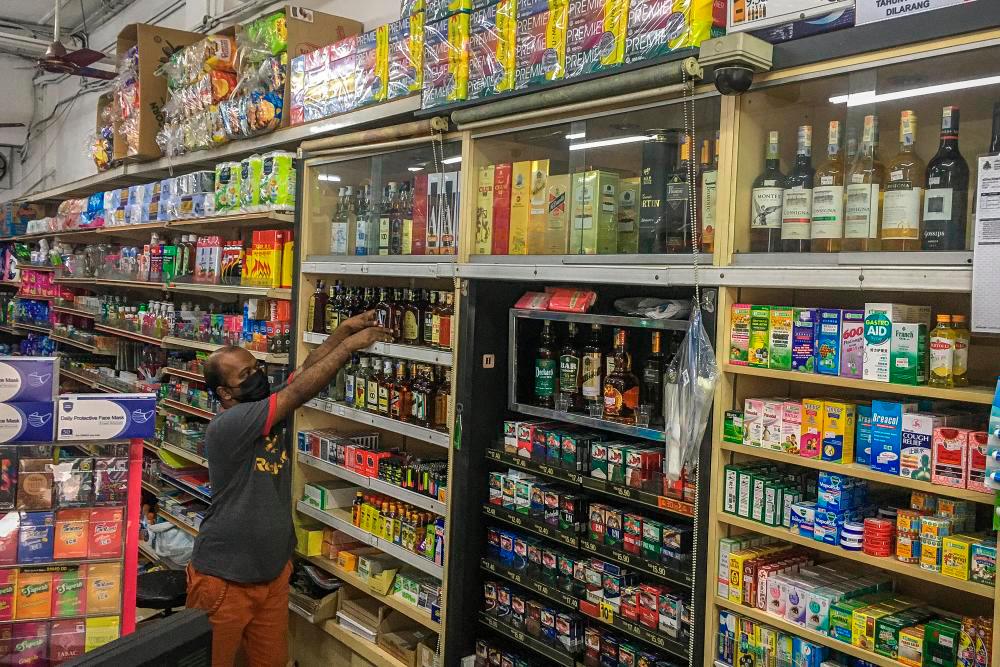PETALING JAYA: Fear not if you cannot get your bottle of single malt at a shop near you. It is easily available just a short drive or even an easy walk away.
That about sums up the ludicrousness of the decision to ban the sale of alcoholic beverages at grocery and convenience stores and Chinese medical shops in Kuala Lumpur.
Added to that is the fact that such a move would not do one bit to achieve the intended objective, which is to curb social ills.
In fact, as some have pointed out, it may even backfire.
Malaysian Medical Association president Dr Koh Kar Chai said it could lead to the sale of illicit alternatives, thereby creating a new problem for the authorities.
On Nov 15 last year, Kuala Lumpur City Hall mooted a change in the guidelines on the sale of liquor to ban such transactions at selected outlets.
The new guidelines, which allow sundry and convenience stores and Chinese medical shops to sell such items only from 7am to 9pm, came into force on Nov 1.
In addition, Chinese medical shops that sell mixed or pure alcohol for medicinal purposes must now get approval from the Health Ministry.
Koh pointed out that those who want to purchase alcoholic drinks would only have to drive to Selangor.
He said consumers would look for alternative sources and may end up buying fake, illicit or smuggled booze, adding that to deal with alcohol addiction, which is what the ban is supposed to address, a better way is for those affected to seek professional help.
“This will require a whole-of-society approach led by experts such as psychiatrists trained in treating addictions. Substance abuse is a mental health issue that requires medical attention.”
Koh said in certain states in India, the authorities have allowed licensed outlets to cater to the needs of the working class in efforts to stop the consumption of cheap illicit liquor and reduce morbidity and mortality.
In a joint statement issued recently, the Malaysian Retail Chain Association and the Associated Liquor Merchants Association (Alma) said many of their members have applied for licences to sell alcoholic beverages to meet a clear demand in the market.
They said this was also to help them raise revenue to recover from the business setbacks created by the Covid-19 pandemic.
“Taking away our right to sell alcoholic beverages will have a severe impact on jobs and sustainability of our business.”
They pointed out that there had not been any major problem arising from the sale of liquor for decades.
“Let us not take away the rights of non-Muslims to support local businesses by purchasing their choice of beverages from us,” Alma said.
Former secretary-general of the Treasury Tan Sri Mohd Sheriff Kassim described the move as short-sighted.
“When the sale of liquor is not allowed in the open market, the black market will step in to take over.”
He said given the highly porous border Malaysia has with its neighbours, there will be opportunities for corrupt Customs and marine police officers to make a fast buck by allowing liquor to be smuggled into the country.
Mohd Sheriff also expressed concern that the move could lead to the setting up of illegal distillers and production facilities to produce samsu (moonshine) and crude whiskey, which are more dangerous.
“For every new policy that the government is considering, there are trade-offs. For instance, the ban on the sale of liquor may please the Muslim majority but it will also have an impact on tax revenue,” he said.
He added that tourist arrivals could also drop, and that would be detrimental to many economic sectors.
They said this was also to help them raise revenue to recover from the business setbacks created by the Covid-19 pandemic.
“Taking away our right to sell alcoholic beverages will have a severe impact on jobs and sustainability of our business.”
They pointed out that there had not been any major problem arising from the sale of liquor for decades.
“Let us not take away the rights of non-Muslims to support local businesses by purchasing their choice of beverages from us,” Alma said.
Former secretary-general of the Treasury Tan Sri Mohd Sheriff Kassim described the move as short-sighted.
“When the sale of liquor is not allowed in the open market, the black market will step in to take over.”
He said given the highly porous border Malaysia has with its neighbours, there will be opportunities for corrupt Customs and marine police officers to make a fast buck by allowing liquor to be smuggled into the country.
Mohd Sheriff also expressed concern that the move could lead to the setting up of illegal distillers and production facilities to produce samsu (moonshine) and crude whiskeys, which are more dangerous.
“For every new policy that the government is considering, there are trade-offs. For instance, the ban on the sale of liquor may please the Muslim majority but it will also have an impact on tax revenue,” he said.
He added that tourist arrivals could also drop, and that would be detrimental to many economic sectors.















